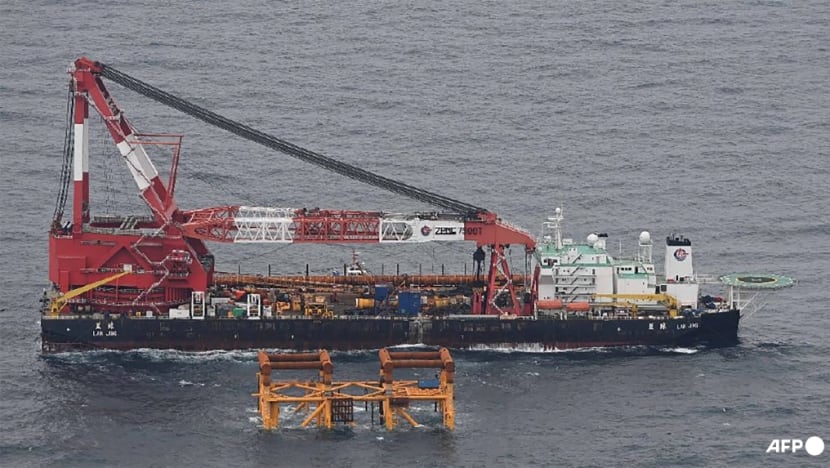Politics
Japan Protests China’s Gas Field Development in East China Sea

Japan has formally protested to China over the latter’s alleged efforts to develop gas fields in disputed waters of the East China Sea. The Japanese Ministry of Foreign Affairs announced on August 25, 2023, that it had confirmed the establishment of drilling rigs by Beijing in a region where the exclusive economic zones (EEZs) of both nations overlap. In response, Japan lodged a complaint with the Chinese embassy in Tokyo.
Tokyo expressed significant concern, stating, “It is extremely regrettable that China is advancing unilateral development.” The ministry noted that these activities were occurring on the Chinese side of the de facto maritime border. Japan accused China of positioning **21 suspected drilling rigs** in the contested area, raising fears that gas resources located on the Japanese side could also be extracted without consent.
Calls for Resumption of Bilateral Talks
The Japanese government has issued a “strong protest” to the Chinese embassy, urging Beijing to resume discussions regarding the **2008 bilateral agreement** that aimed to manage resource development in the East China Sea. This agreement was intended to facilitate joint development of undersea gas reserves while prohibiting independent drilling by either party. However, negotiations concerning the implementation of this deal were suspended in **2010**, leaving the future of resource extraction in the region uncertain.
Japan maintains that the median line between the two countries should delineate their respective EEZs. Conversely, China asserts that the maritime border should be drawn closer to Japan, considering the continental shelf and other oceanic features. This disagreement contributes to heightened tensions between the two nations, which are also engaged in a separate dispute over the **Senkaku Islands**, known as the **Diaoyu Islands** in China.
Wider Regional Implications
The situation underscores ongoing complexities in East Asian geopolitics. China frequently conducts operations in the vicinity of the disputed islands, testing Japan’s response times with naval ships and aircraft. This activity not only affects Japan but also has implications for several other nations involved in separate disputes in the South China Sea, which China claims in its entirety.
As regional dynamics evolve, Japan’s protest reflects its commitment to protecting its territorial claims and interests in the East China Sea. The international community watches closely, as developments in this dispute may affect broader stability in the region.
-

 World5 months ago
World5 months agoSouth Korea’s Foreign Minister Cho Hyun to Visit China This Week
-

 Business5 months ago
Business5 months agoStarling Bank Plans Secondary Share Sale, Targeting $5.4 Billion Valuation
-

 Top Stories5 months ago
Top Stories5 months agoMunsang College Celebrates 100 Years with Grand Ceremony
-

 World5 months ago
World5 months agoPAS Aims to Expand Parliamentary Influence in Upcoming Election
-

 Business7 months ago
Business7 months agoKenvue Dismisses CEO Thibaut Mongon as Strategic Review Advances
-

 Lifestyle6 months ago
Lifestyle6 months agoHumanism Camp Engages 250 Youths in Summer Fest 2025
-

 Sports6 months ago
Sports6 months agoDe Minaur Triumphs at Washington Open After Thrilling Comeback
-

 Sports7 months ago
Sports7 months agoTupou and Daugunu Join First Nations Squad for Lions Clash
-

 Top Stories7 months ago
Top Stories7 months agoColombian Senator Miguel Uribe Shows Signs of Recovery After Attack
-

 World7 months ago
World7 months agoASEAN Gears Up for Historic Joint Meeting of Foreign and Economic Ministers
-

 Health6 months ago
Health6 months agoNew Study Challenges Assumptions About Aging and Inflammation
-

 Business7 months ago
Business7 months agoOil Prices Surge Following New EU Sanctions on Russia









